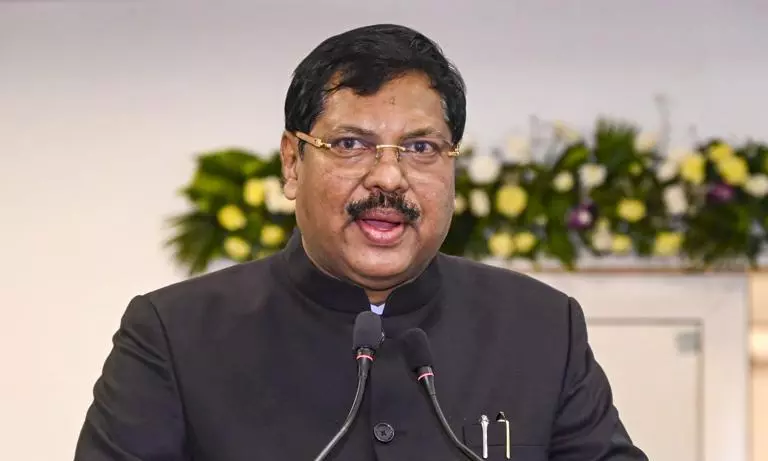
Corruption & misconduct in judiciary impact public confidence: CJI Gavai
text_fieldsNew Delhi: Chief Justice of India B R Gavai has emphasised that corruption and misconduct within the judiciary undermine public trust, potentially eroding confidence in the system's integrity.
Speaking at a roundtable conference at the Supreme Court of the United Kingdom on "Maintaining Judicial Legitimacy and Public Confidence", he also addressed concerns over post-retirement appointments. He noted that if a judge accepts a government position immediately after retirement or resigns from the bench to enter politics, it raises "significant ethical concerns and invites public scrutiny".
Regarding judicial corruption, the CJI reaffirmed that whenever such instances arise, the Supreme Court has consistently taken swift and appropriate action to address the misconduct.
"Furthermore, every system, no matter how robust, is susceptible to issues of professional misconduct. Sadly, there have been instances of corruption and misconduct that have surfaced even within the judiciary. Such occurrences inevitably have a negative impact on public confidence, potentially eroding faith in the integrity of the system as a whole. "However, the path to rebuilding this trust lies in the swift, decisive, and transparent action taken to address and resolve these issues. In India, when such instances have come to light, the Supreme Court has consistently taken immediate and appropriate measures to address the misconduct," the CJI said.
CJI Gavai said in every democracy, the judiciary must not only dispense justice but also be seen as an institution that deserves to hold truth to power, and the terms "judicial legitimacy" and "public confidence" are interconnected.
Dealing with the often debated issue of post-retirement jobs taken by judges, he said the timing and nature of such post-retirement engagements could undermine the public's trust in the judiciary's integrity, as it could create a perception that judicial decisions were influenced by the prospect of future government appointments or political involvement. "Another point of discussion is post-retirement jobs taken by judges. In India, judges are subject to a fixed retirement age. If a judge takes up another appointment with the government immediately after retirement or resigns from the bench to contest elections, it raises significant ethical concerns and invites public scrutiny," he said.
"In light of this, many of my colleagues and I have publicly pledged not to accept any post-retirement roles or positions from the government. This commitment is an effort to preserve the credibility and independence of the judiciary," CJI Gavai said.
CJI Gavai added that to enhance public transparency, the Supreme Court of India also initiated live-streaming of its Constitution Bench cases.
"However, as with any powerful tool, live streaming must be wielded with care, as fake news or out-of-context court proceedings can negatively shape public perception.
CJI Gavai also justified the collegium system for the appointment of judges in the higher judiciary and pointed out that until 1993, it was the executive that had the final say in the appointment of judges to the Supreme Court and high courts.
He said, "There may be criticisms of the collegium system, but any solution must not come at the cost of judicial independence. Judges must be free from external control."
(inputs from PTI)






